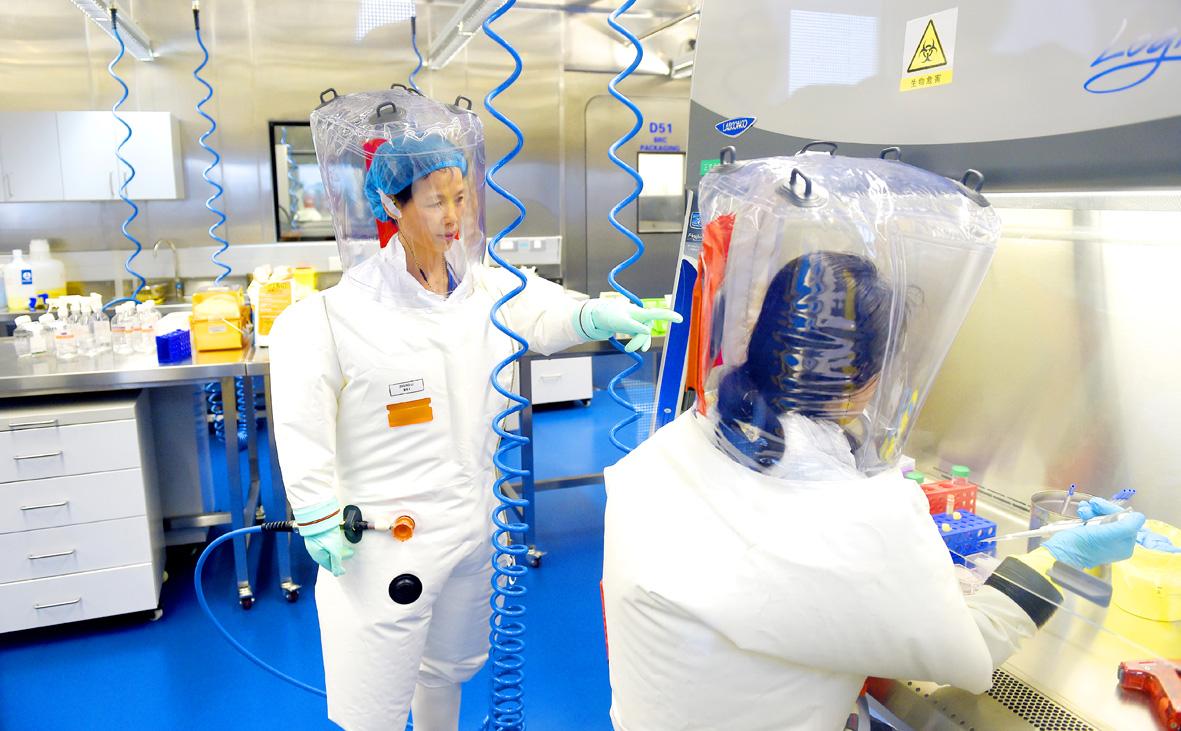China’s “bat woman” has lashed out at US President Donald Trump, saying the he owes her country an apology as she again denied assertions that the novel coronavirus is linked to the lab where she works.
Wuhan Institute of Virology (WIV) Deputy Director Shi Zhengli (石正麗) said in an interview published in Science magazine that she and her colleagues encountered the virus in December last year, when reports of the disease first emerged in the city.
She said the lab had not seen or studied the virus before that.

Photo: AP
“US President Trump’s claim that SARS-CoV-2 was leaked from our institute totally contradicts the facts,” Shi said in the article published on Friday. “It jeopardizes and affects our academic work and personal life. He owes us an apology.”
Trump, who has repeatedly referred to COVID-19 as the “China Virus,” and US Secretary of State Michael Pompeo have suggested a link between the Wuhan lab and the outbreak, although no evidence has ever been presented publicly.
While Shi, who is renowned for her work on coronaviruses in bats, has previously dismissed any link between the virus and the lab, her comments in the interview provided the most detailed rebuttal yet:
The WIV has identified hundreds of bat viruses, but never anything close to SARS-CoV-2, Shi said.
Questions have been raised about a possible link with RaTG13, a bat virus similar to SARS-CoV-2.
Shi said the lab did not culture that bat virus, making an accident unlikely.
Shi said differences in the sequences of the two viruses suggest they diverged from a common ancestor 20 to 70 years ago.
Shi’s partial genome sequencing in 2016 of a coronavirus she called 4991 led to suspicions it was SARS-CoV-2, but she said 4991 is actually RaTG13: 4991 was named for the bat, and was switched to RaTG13 after the entire virus was sequenced.
Years of surveillance in Hubei Province has not turned up bat coronaviruses close to SARS-CoV-2, leading her to believe the jump from animals to humans happened elsewhere, she said.

ANGER: A video shared online showed residents in a neighborhood confronting the national security minister, attempting to drag her toward floodwaters Argentina’s port city of Bahia Blanca has been “destroyed” after being pummeled by a year’s worth of rain in a matter of hours, killing 13 and driving hundreds from their homes, authorities said on Saturday. Two young girls — reportedly aged four and one — were missing after possibly being swept away by floodwaters in the wake of Friday’s storm. The deluge left hospital rooms underwater, turned neighborhoods into islands and cut electricity to swaths of the city. Argentine Minister of National Security Patricia Bullrich said Bahia Blanca was “destroyed.” The death toll rose to 13 on Saturday, up from 10 on Friday, authorities

OPTIMISTIC: A Philippine Air Force spokeswoman said the military believed the crew were safe and were hopeful that they and the jet would be recovered A Philippine Air Force FA-50 jet and its two-person crew are missing after flying in support of ground forces fighting communist rebels in the southern Mindanao region, a military official said yesterday. Philippine Air Force spokeswoman Colonel Consuelo Castillo said the jet was flying “over land” on the way to its target area when it went missing during a “tactical night operation in support of our ground troops.” While she declined to provide mission specifics, Philippine Army spokesman Colonel Louie Dema-ala confirmed that the missing FA-50 was part of a squadron sent “to provide air support” to troops fighting communist rebels in

Two daughters of an Argentine mountaineer who died on an icy peak 40 years ago have retrieved his backpack from the spot — finding camera film inside that allowed them a glimpse of some of his final experiences. Guillermo Vieiro was 44 when he died in 1985 — as did his climbing partner — while descending Argentina’s Tupungato lava dome, one of the highest peaks in the Americas. Last year, his backpack was spotted on a slope by mountaineer Gabriela Cavallaro, who examined it and contacted Vieiro’s daughters Guadalupe, 40, and Azul, 44. Last month, the three set out with four other guides

Local officials from Russia’s ruling party have caused controversy by presenting mothers of soldiers killed in Ukraine with gifts of meat grinders, an appliance widely used to describe Russia’s brutal tactics on the front line. The United Russia party in the northern Murmansk region posted photographs on social media showing officials smiling as they visited bereaved mothers with gifts of flowers and boxed meat grinders for International Women’s Day on Saturday, which is widely celebrated in Russia. The post included a message thanking the “dear moms” for their “strength of spirit and the love you put into bringing up your sons.” It